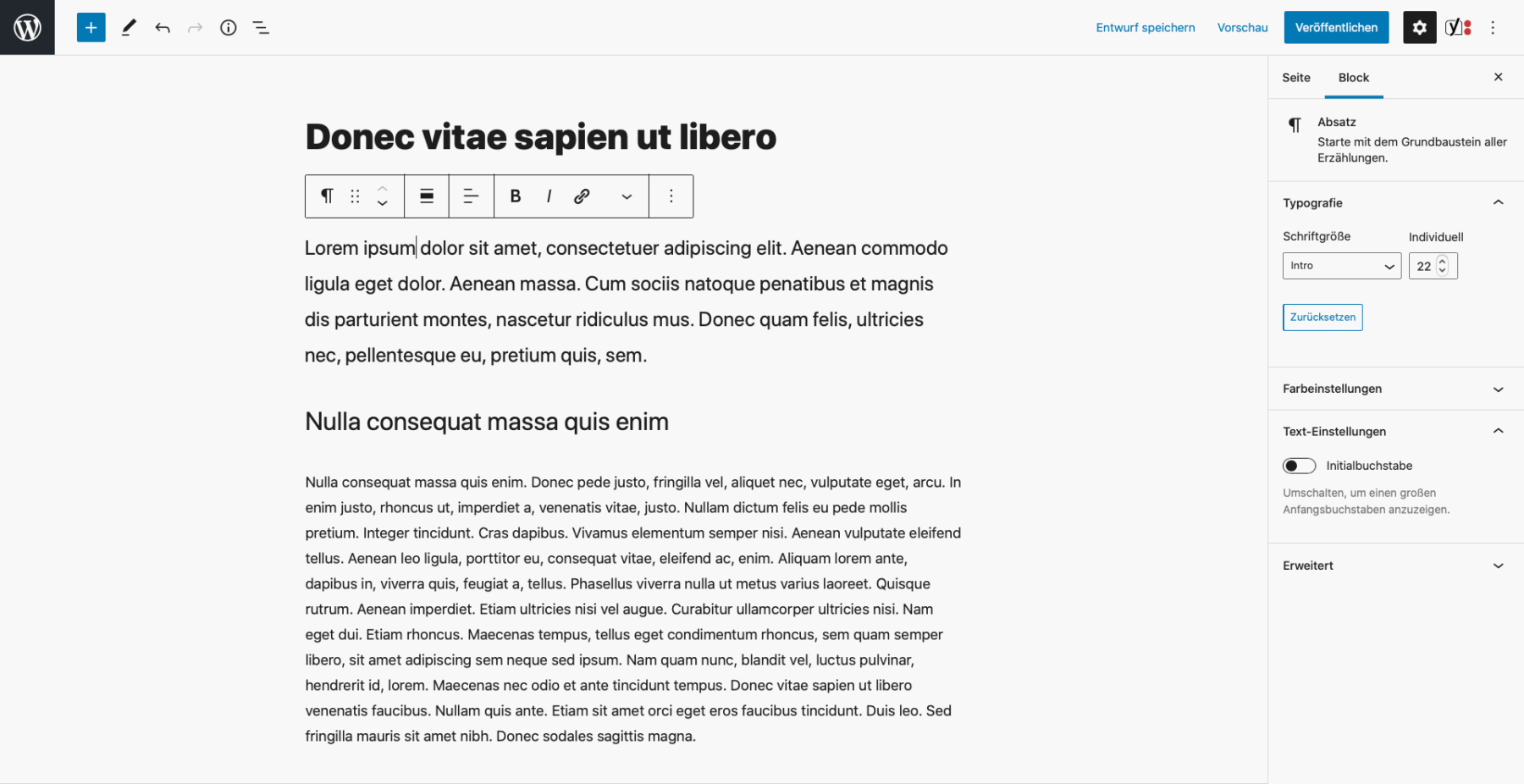WordPress – The world’s most popular content management system
WordPress is a content management system (CMS for short) that is used to create and maintain websites. A content management system makes it possible for people without programming knowledge to easily change the most important aspects of a website – such as text and images – themselves.
WordPress is future-proof
WordPress was originally developed in 2003 as a pure blog system. Over time, however, many functionalities have been added so that WordPress is now capable of handling large corporate websites with complex structures, online stores, forums and much more.
Around 43% of all websites worldwide are now based on WordPress (as of October 2022). In relation to all other content management systems, WordPress even has the largest share worldwide with 64.3 percent. The trend is still rising.
As open source software, the CMS is basically free of charge and is constantly being further developed by a large community of contributors. This means that WordPress is ideally equipped for the future.
The advantages of WordPress
1. cost-effective installation
Compared to other content management systems such as Typo3, Contao and others, WordPress is easy and inexpensive to set up. There are also no software costs, as WordPress is open source software (licensed under the GNU General Public License (GPL)).
2. low hardware requirements
The technical requirements of WordPress are lower than those of most other content management systems. The system therefore runs smoothly on normal low-cost hosting packages from 1&1 IONOS, HostEurope or Kaeding Anderson, for example.
3. quick and easy operation
Many users praise the user-friendliness of WordPress. Thanks to the simple and clear interface and the integrated page builder, the so-called “Gutenberg Editor”(demo), creating and changing content is child’s play.

4. flexible user rights
WordPress allows accounts for editors with different user rights. For example, it can be set that area managers are only allowed to change the content of their own areas.
5. expandable through plugins
WordPress is inexpensive to expand, because there is a plugin for almost every desired function. If, for example, a contact form is to be integrated into the website, a suitable extension can simply be installed in WordPress. This can then be individually adapted or extended.
6. speaking URLs
What has to be laboriously programmed in other systems is supplied directly with WordPress. The page titles form the basis for the URLs (e.g. yourdomain.com/about-us/history).
7. search engine optimized
In order for a website to be found in Google & Co., it should of course be optimized for search engines. The source code generated by WordPress is already designed “ex works” in such a way that search engines love it. Websites created with WordPress therefore tend to rank better than other websites. The search engines are also notified directly of new content – for the fastest possible indexing.
For those who want to go one step further, we also offer various SEO measures.
8. automatic backup of content
WordPress automatically creates different revisions of the posts and pages in the system in the background. This means you can restore a previous status at any time.
9. low maintenance effort
Just like PCs and smartphones, a content management system also needs to be regularly updated to the latest technical standards. WordPress constantly provides updates that enable new functions, but also close security gaps to protect your own website.
Smaller updates, the so-called “minor updates”, are automatically installed with WordPress and many extensions (plugins) can also be updated automatically. This means that security gaps are automatically closed as soon as they are discovered.
Major WordPress updates, on the other hand, significantly optimize performance and functionality. Experience has shown that these have to be carried out a maximum of 1-2 times a year and usually go off without a hitch, as WordPress is very concerned about downward compatibility.
10. content and layout flexible
Created themes (layout templates) and the content entered in the system are saved independently of each other. This means that the layout can be updated at a later date with little effort.
11. independence
The WordPress system is widely used, is constantly being further developed and can be managed by many service providers – making it a long-term and secure investment.
References
We would be happy to send you a current list of our already implemented WordPress projects or present them to you in detail in a personal meeting. But first, here are some of our favorite examples: